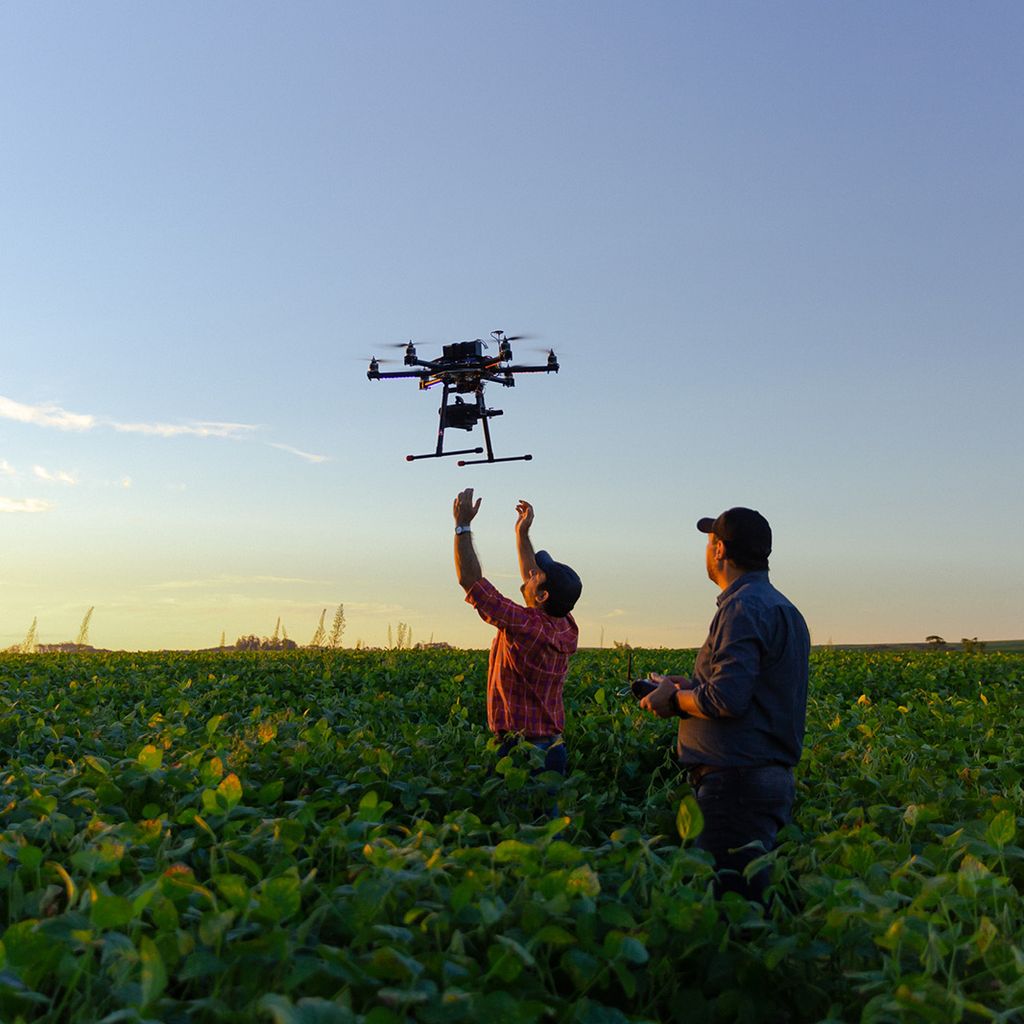From Farm to Byte: The Convergence of Technology and Agriculture Real Estate

Late last year, the New York Times reported farmland values hit record highs. In 2022, cropland values increased by 12.4% nationwide, and Farmers National Company set a new record sales volume of $766 million, exceeding the previous record in 2021 of $750 million. While many asset classes in commercial real estate have weakened amidst the current economic instability, agriculture acreage is rising in demand among investors. And due to its finite availability, returns are expected to grow rapidly.
In tandem with the post-pandemic economic conditions, the advent of new technologies shifted the way many farmers manage their land, in turn impacting the commercial real estate sector.
Rise of Precision Technology
One of the most significant developments in recent years has been the use of precision agriculture technology. The global precision agriculture market is anticipated to expand at a compound annual growth rate (CAGR) of 13.40% between 2023-2028. This technology involves the use of sensors and other tools to collect data on soil, weather, and other factors that affect crop growth. Farmers can use this information to make more informed decisions about planting, fertilizing, and watering their crops. The result is more efficient and effective farming practices, leading to higher crop yields and greater profits.
The use of precision agriculture technology has also led to changes in the way farmers manage their land. By collecting detailed data on soil quality, for example, farmers can identify areas of their fields that require more nutrients or water. This enables them to use these resources more efficiently, reducing the amount of land needed to produce the same amount of food – which can have major implications for land values and real estate activity.
Use of Drones
Another significant development in agriculture technology is the use of drones, which are rising in use across commercial and small family-owned farms. Farmers can use drones with cameras and other sensors to monitor crop growth and identify areas needing attention. This technology allows farmers to identify problems early, such as pests or diseases, before they can spread and cause damage. It also enables farmers to assess the health of their crops more quickly and accurately, reducing the risk of crop loss.
The use of drones has also had an impact on the real estate industry. With the ability to monitor crop growth more effectively, farmers can identify areas of their land that are not producing as well as they should be. This information can be used to make more informed decisions about whether to sell or lease the land, potentially leading to higher profits for the farmer and increased demand for real estate in the area.
Artificial Intelligence’s Impact
The use of artificial intelligence (AI) in agriculture is another area poised to significantly impact the industry. AI can be used to analyze vast amounts of data, including weather patterns, soil quality, and crop yields, to make predictions about future crop growth. This information can be used by farmers to make more informed decisions about planting and harvesting, reducing the risk of crop loss and increasing yields. Other possible applications of the technology may include the optimization of labor, early detection of pests and diseases, and better compliance with irrigation and fertilization regulations, per Forbes.
The use of AI in agriculture also has the potential to lead to changes in the real estate industry. By providing more accurate predictions about crop yields and weather patterns, farmers can make better-informed decisions about land use. This could lead to an increase in demand for land that is suitable for certain types of crops, potentially leading to higher prices for real estate in these areas.
Agriculture has been a critical sector of the economy for centuries, providing food and resources for human populations worldwide. Recent advancements in AgTech are significantly impacting the industry and demand for farmland, which experts believe isn’t changing anytime soon. According to Bloomberg, the rising values are believed to be part of “a decade-long trend.”
A Trusted Guide in Commercial Real Estate
Coldwell Banker Commercial® provides Commercial Real Estate Services from Property Sales and Leases, to Property Management. Learn how our expansive network of Independently Owned and Operated Affiliates and Real Estate Professionals use their in-depth knowledge of the local market and industry trends to help businesses and investors navigate the complexities of the commercial real estate landscape.






